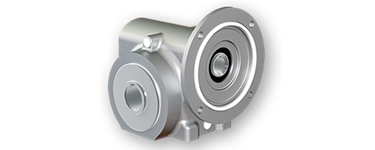Mobile:+86-311-808-126-83
Email:info@ydcastings.com
metal casting materials
Metal Casting Materials An Overview
Metal casting is a pivotal process in manufacturing, where molten metal is poured into a mold to create desired shapes and structures. The choice of materials used in metal casting directly impacts the final product's quality, performance, and overall efficiency of the casting process. Understanding the various materials available is essential for both casting engineers and manufacturers.
The primary metals used in casting include iron, aluminum, copper, zinc, and magnesium
. Each of these metals possesses unique characteristics that make them suitable for different applications.Iron is the most commonly cast metal, primarily in the form of gray iron and ductile iron. Gray iron is known for its excellent machinability and wear resistance, making it ideal for engine blocks, pipes, and various automotive components. Ductile iron, on the other hand, boasts enhanced tensile strength and ductility, making it suitable for critical structural applications like gearboxes and suspension components.
Aluminum is another popular casting metal, renowned for its lightweight and excellent corrosion resistance. Aluminum castings are widely used in aerospace, automotive, and consumer goods due to their mechanical properties and ability to be easily machined. The use of aluminum alloys, such as A356 and A380, has expanded the range of applications due to their improved strength and thermal conductivity.
metal casting materials

Copper, though more expensive, is often utilized in casting applications that require excellent thermal and electrical conductivity. It is primarily found in electrical components, plumbing fittings, and decorative items. Copper alloys, such as brass and bronze, also provide unique properties like improved corrosion resistance and strength, making them suitable for marine applications and intricate machinery.
Zinc is predominantly used in die casting due to its low melting point and excellent fluidity. This makes it ideal for mass production of intricate parts with high precision. Zinc alloy castings are commonly used in the automotive and electronics industries, especially for components like housings and brackets.
Magnesium is considered the lightest structural metal and is favored for applications where weight reduction is crucial, such as in aerospace and automotive parts. Its casting processes can produce strong, lightweight components that improve fuel efficiency and overall performance.
In addition to the base metals, various casting processes, such as sand casting, investment casting, and die casting, can be employed to maximize the properties of these materials. Each method has its own advantages, from the flexibility of sand casting to the precision of investment casting.
In conclusion, the choice of metal casting materials is critical to the success of any manufacturing process. Iron, aluminum, copper, zinc, and magnesium each present unique benefits that cater to a wide range of industries. As technology advances, the development of new alloys and casting techniques continues to enhance the capabilities of metal casting, leading to more efficient production methods and superior products. Understanding these materials allows manufacturers to make informed decisions that ensure durability and performance in their final products.
-
Why Should You Invest in Superior Pump Castings for Your Equipment?NewsJun.09,2025
-
Unlock Performance Potential with Stainless Impellers and Aluminum End CapsNewsJun.09,2025
-
Revolutionize Your Machinery with Superior Cast Iron and Aluminum ComponentsNewsJun.09,2025
-
Revolutionize Fluid Dynamics with Premium Pump ComponentsNewsJun.09,2025
-
Optimizing Industrial Systems with Essential Valve ComponentsNewsJun.09,2025
-
Elevate Grid Efficiency with High-Precision Power CastingsNewsJun.09,2025











